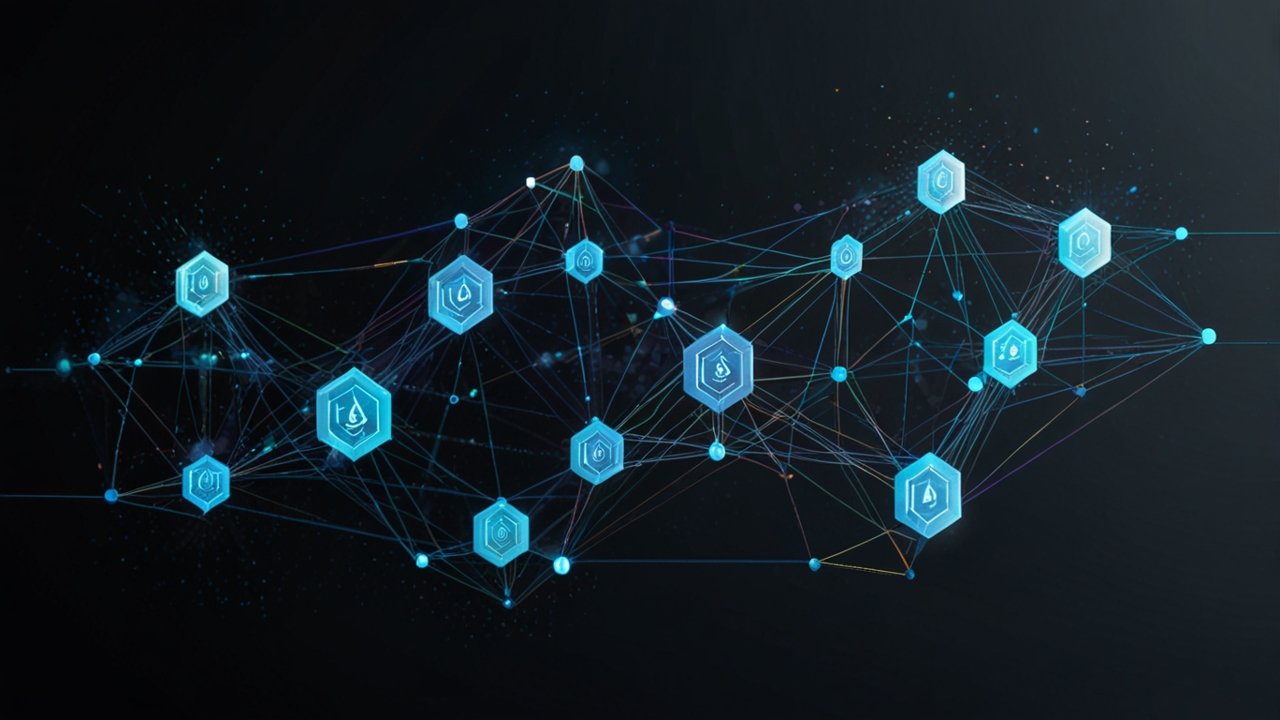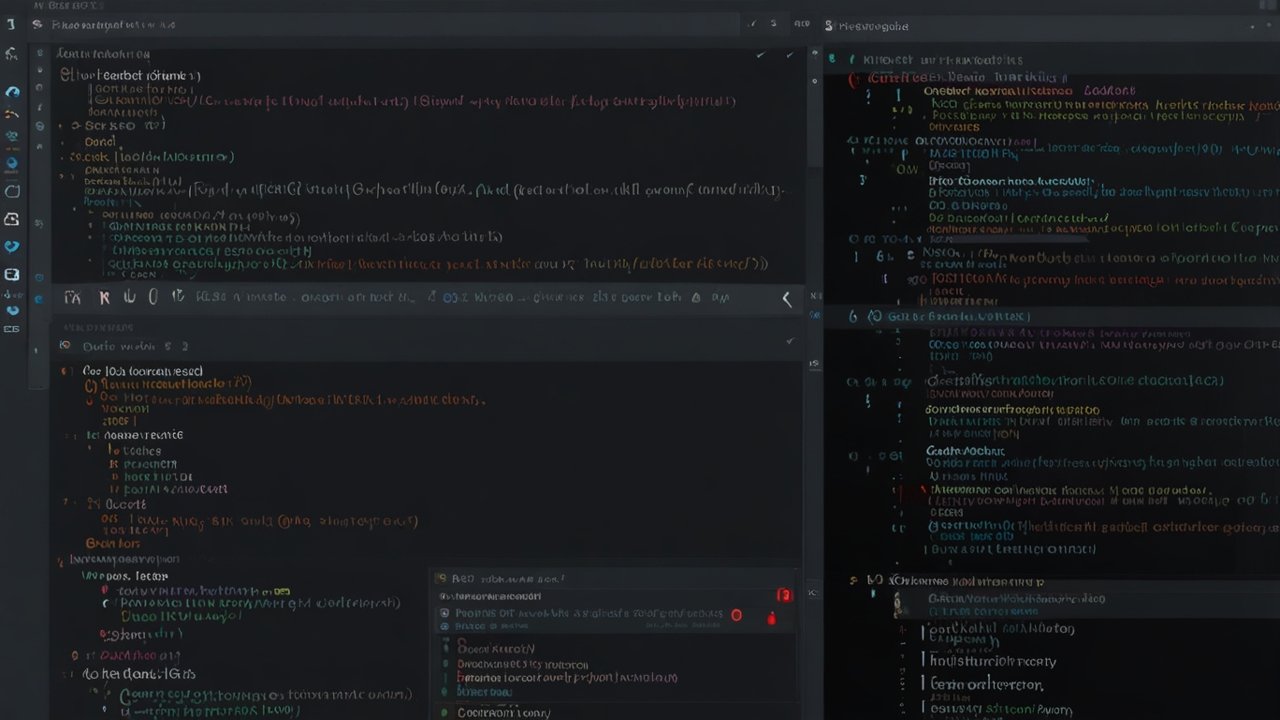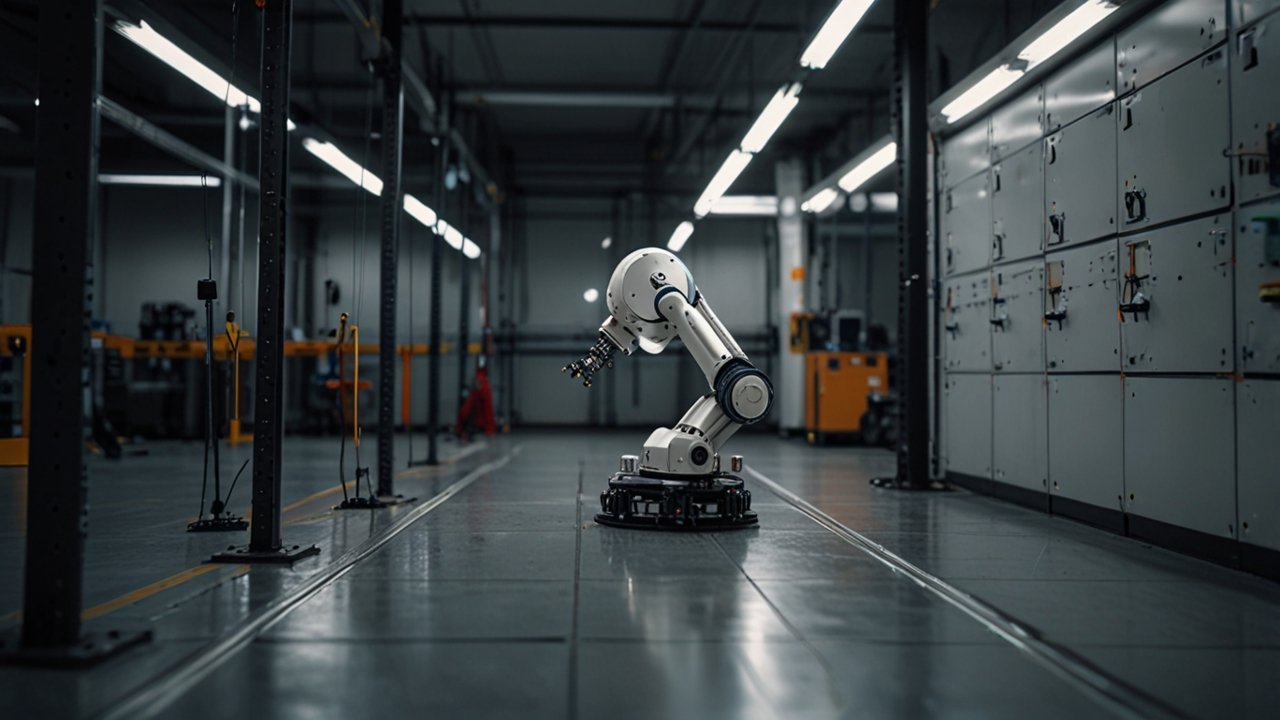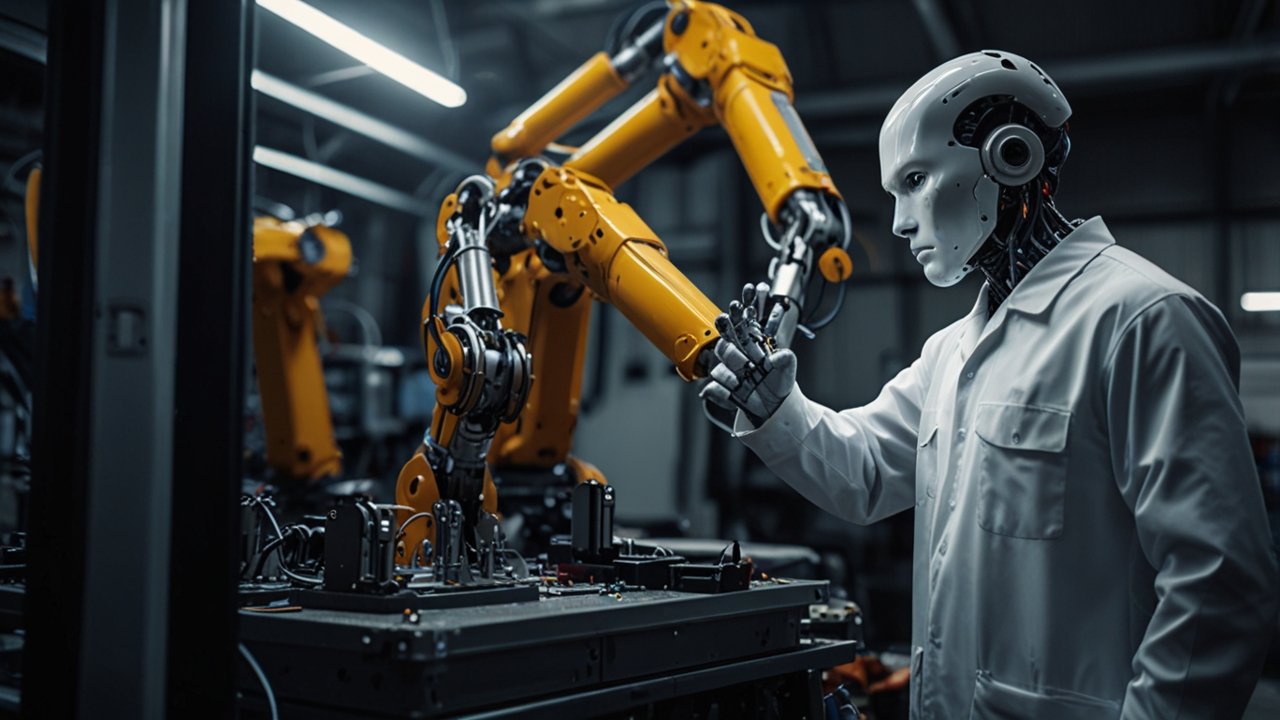AI Coding 7 Practical Applications
Welcome to our comprehensive exploration of AI Coding in modern software development. In this article, you’ll discover the evolution, current state, and future possibilities surrounding the integration of intelligent coding systems. We invite you to follow along and share your thoughts as you read.
This article is designed for readers of all backgrounds, explaining complex topics in a clear and interactive manner. Whether you are a beginner or a seasoned developer, there’s something here for you. Enjoy the journey into the world of AI-driven code assistance!
📑 Table of Contents
- Introduction to AI Coding
- Evolution and History of AI Coding
- How Automated Programming Enhances AI Coding
- code generation intelligence Systems and Their Applications
- Real-World Case Studies of AI Coding
- software development assistant in Modern AI Coding Solutions
- Future Trends: automated development tool and Beyond
- AI Coding Spotlight: New Horizons
- FAQ
- Conclusion
We have structured this post to help you easily navigate through the rich history, advanced techniques, and emerging trends that shape AI Coding today.
Introduction to AI Coding
Discover the transformative world of advanced coding systems. Explore our insights alongside cutting-edge thoughts provided by Artificial Intelligence. In today’s fast-evolving digital era, many developers are turning to innovative methods that combine human creativity with intelligent systems.
Fundamentals and Context
The concept of AI Coding has its roots in the early days of computing. Early efforts in developing code assistance tools paved the way for modern systems. Researchers sought to create tools that would simplify the coding process and enhance productivity.
Foundational principles came from decades of research in artificial intelligence and machine learning. Early languages such as LISP highlighted the potential for computational reasoning. Have you ever wondered how foundational research influenced today’s technologies?
A study from TechTarget emphasizes that these foundational steps were critical to evolution.
Basic Concepts and Benefits
Many developers appreciate how intelligent systems reduce repetitive tasks. These systems offer real-time suggestions and enable faster development cycles. The benefits include improved productivity and reduced errors.
Integration within popular development environments makes these tools accessible and user-friendly. Developers can now concentrate on creative problem-solving while technology handles routine tasks. What benefits have you personally experienced using such tools?
For more information, you can explore further insights on Coursera.
Evolution and History of AI Coding
The evolution of intelligent coding tools is closely intertwined with innovations in programming. This journey reflects decades of trial, error, and breakthrough achievements as observed by Automation Technologies.
Early Milestones and Innovations
In the 1950s and 1960s, pioneers introduced techniques that allowed computers to process logic. The term “Artificial Intelligence” was coined in 1956 at the Dartmouth workshop. Early development of languages like LISP paved the way for coding applications.
The perceptron and ADALINE were among the first adaptive systems developed for pattern recognition. These innovations laid the groundwork for tools that assist in code generation. How do you think these early efforts pave the way for current advancements?
According to Wikipedia, these foundational moments were critical in establishing the trajectory of future research.
From AI Winters to Modern Resurgence
The history of intelligent coding witnessed periods of high optimism and deep skepticism. The 1980s, a time marked by early AI booms, eventually encountered setbacks due to hardware limitations. Nonetheless, the resurgence in the 2000s transformed these challenges into opportunities.
Modern breakthroughs in deep learning and machine learning allowed for the rapid development of sophisticated code assistance tools. The steady progress over decades culminated in practical tools we see today. Have you noticed the difference in tool efficiency over the years?
For detailed historical insights, check out a detailed timeline on Barstow.
How Automated Programming Enhances AI Coding
Automated programming introduces a new level of precision in software development. Appreciate the blend of art and technology through insights from Innovative Solutions. This section explores how automation elevates the coding process.
Increased Efficiency and Accuracy
Automation in programming minimizes the need for manual code review. Automated systems provide real-time recommendations based on vast datasets. This reduces errors and speeds up the development process significantly.
By leveraging machine learning algorithms, these tools can identify patterns and offer corrective actions instantly. This collaboration between human expertise and automated inspections leads to enhanced code quality. What improvements have you observed in your projects due to automation?
Studies published on Litslink support these benefits with extensive research data.
Enhanced Collaboration and Learning
Automated programming tools dynamically learn from user feedback. They gradually adapt to individual coding styles and organizational standards. This enables a form of intelligent collaboration between the developer and the system.
These tools are embedded within popular integrated development environments (IDEs), making them easily accessible anywhere. Their adaptive features foster a culture of continuous learning and improvement. How do you feel about working side-by-side with an adaptive system?
The evolution of these systems often reflects the principles of continuous improvement seen in industrial automation.
code generation intelligence Systems and Their Applications
Exploring the practical implementations of sophisticated code-generating systems reveals new horizons. Our discussion is enhanced by insights from Cutting-Edge Technologies. This section highlights various applications of intelligent systems in code creation and analysis.
Real-Time Code Completion and Suggestions
Modern development environments now integrate real-time code completion. These systems offer suggestions instantly while you type, reducing repetitive tasks. Enhanced by intelligent algorithms, this functionality ensures higher code accuracy.
For instance, tools like GitHub Copilot have revolutionized how code snippets are generated. Developers now enjoy greater productivity and fewer syntax errors. Can you recall a moment when an automated suggestion saved you valuable time?
Numerous success stories have emerged, as recorded on GitLab.
Bug Detection and Automated Refactoring
Intelligent systems now streamline the process of identifying bugs. Automated detection tools navigate complex codebases and flag potential issues. They provide developers with clear corrective actions to enhance system stability.
Additionally, these systems can automatically restructure code for improved performance and readability. More sophisticated tools even generate comprehensive tests to validate changes. What steps do you take once a bug is detected?
This capability has transformed debugging practices and drives efficiency in major development projects.
Real-World Case Studies of AI Coding
Practical applications demonstrate the transformative impact of intelligent coding tools. Learn more about these successes through insights shared by Digital Transformation. This section covers real-world examples that showcase significant improvements in project outcomes.
Global Implementations and Success Stories
Accenture’s “Ask Emma” exemplifies the potential of modern systems in project management. This virtual assistant automates scheduling, risk analysis, and documentation, leading to faster project deliveries. In Europe, Siemens leverages intelligent tools to optimize resource allocation effectively.
Major companies like Autodesk have integrated advanced systems in managing design projects. They have reported reduced rework and error identification in critical architectural plans. Have you experienced how such systems streamline project tasks?
These case studies underscore the global reach of modern development tools.
Comparison of Key Case Studies
Below is a comprehensive comparison table summarizing various global case studies and their impacts:
Comprehensive Comparison of Case Studies
| Example | Innovation | Impact | Region |
|---|---|---|---|
| Accenture’s Ask Emma | Virtual Assistant | Accelerated project delivery | Global |
| Siemens Resource Optimizer | Predictive Analysis | Enhanced planning efficiency | Europe |
| Autodesk Design Checker | Error Identification | Reduced rework | US/Global |
| Japan Meti Pilot | Coding Tools | 30% development time reduction | Asia |
| Samsung SDS Assist | In-house Advisor | 25% increase in review efficiency | South Korea |
By evaluating these examples, it becomes clear that advanced coding tools are not just experimental but yield measurable improvements in productivity. What case studies resonate most with your experiences?
software development assistant in Modern AI Coding Solutions
Integrating Intelligent Assistants into Workflows
Modern systems now serve as a virtual partner during the development process. They help in documentation, code explanation, and generating tests for comprehensive verification. This results in more robust and maintainable systems.
For developers, these virtual assistants offer an innovative way to overcome challenges. By integrating feedback loops, they continuously adapt to improve performance. How might a virtual assistant change your development workflow?
This collaboration supports the notion of technology as a co-creator rather than just a tool.
Improving Onboarding and Knowledge Transfer
Onboarding new team members becomes easier with intelligent assistants. Detailed documentation and dynamic code explanations help reduce the learning curve. This accelerates project familiarity and enhances team productivity.
Knowledge transfer becomes continuous, with systems retaining historical insights from previous projects. All these functions result in a more effective work environment. Can you share an experience where documentation played a crucial role in onboarding?
Test drive these advancements and see improved collaboration in software projects.
Future Trends: automated development tool and Beyond
Deepening Platform Integration
The future promises further integration of intelligent systems throughout the entire development lifecycle. From idea generation to deployment, advanced tools will be fully embedded in every phase. This synergy will promote faster iterations and better quality assurance.
Predictive analytics and continuous feedback loops are expected to become standard features. The evolution will likely see tools that adapt to the developer’s personal style dynamically. What future integration would most improve your workflow?
These trends present exciting opportunities for innovation across industries.
Emerging Fields and Regulatory Directions
Upcoming innovations are predicted to extend into fields such as quantum computing, edge computing, and cybersecurity. Regulatory bodies are increasingly shaping how these intelligent systems are implemented. The divergence in regulatory approaches across regions will spur varied innovation strategies.
Developers and businesses need to adapt to these evolving standards while balancing rapid technological progress. Future tools may also incorporate advanced ethical guidelines for transparency. In what ways do you foresee regulatory policies influencing your work?
These developments prompt us to consider new ways to balance innovation with governance.
AI Coding Spotlight: New Horizons
This section offers a glimpse into futuristic innovations that promise to reshape the digital landscape in profound ways. It highlights remarkable progress driven by relentless human ingenuity and cutting-edge research. You might envision a scenario where technology transforms daily tasks, enabling remarkable efficiency and streamlined processes. Advanced systems are being developed with a clear focus on user-centric design and adaptive functionalities. The transformative experiences described here underscore the role of creative thinking and continuous improvement in this domain.
Beyond the familiar aspects of traditional design methodologies, emerging frameworks are ready to break barriers and set new performance benchmarks. Their ability to learn from past actions will revolutionize problem-solving techniques, pushing boundaries while opening doors to unexplored applications. As new strategies evolve, an intriguing blend of analytical precision and creative exploration is emerging, signifying a turning point for the entire sector.
This innovative journey challenges conventional approaches while inspiring new ideas and unanticipated breakthroughs. The seamless interplay of various technologies creates prospects that help unlock hidden potential in everyday tasks. In essence, this narrative drives home the message that the future is shaped by continuous discovery and the courage to embrace transformative changes.
Ultimately, the narrative encourages a deeper reflection on the role of technology in our lives, urging us to adapt and innovate in ways that foster truly exceptional progress.
FAQ
What is AI Coding?
This term describes the use of intelligent systems that assist with writing, reviewing, and optimizing code. Its development has been influenced by decades of artificial intelligence research.
How has AI Coding evolved over time?
AI Coding started with early machine learning experiments and developments in programming languages. Today, it incorporates deep learning and natural language processing for real-time assistance.
What benefits do automated tools offer developers?
These tools reduce repetitive tasks, improve accuracy, and allow developers to focus on creative problem-solving. They significantly cut down on debugging and testing time.
How do intelligent assistants help in knowledge transfer?
They provide detailed documentation and context-aware explanations that simplify onboarding for new team members. This leads to smoother transitions and better team integration.
What future trends are expected in intelligent coding systems?
We anticipate deeper integration of these systems in the entire development lifecycle, increased personalization, and regulatory advancements aimed at ethical implementations.
Conclusion
The journey of AI Coding from its historical roots to today’s advanced solutions is truly inspiring. We have explored how intelligent systems continuously enhance the coding experience by automating routine tasks and enabling a collaborative development environment.
Modern tools are not only making software development more efficient but are also transforming how we think about coding. The innovative case studies, methodologies, and future trends presented in this article provide a strong foundation for embracing these changes.
Your feedback is invaluable—have you experienced these advancements in your projects? For more information on similar topics, explore our AI & Automation category or Contact us directly.
We invite you to share your thoughts and join the conversation on how this transformative phenomenon is reshaping the digital world.




















Leave a Reply